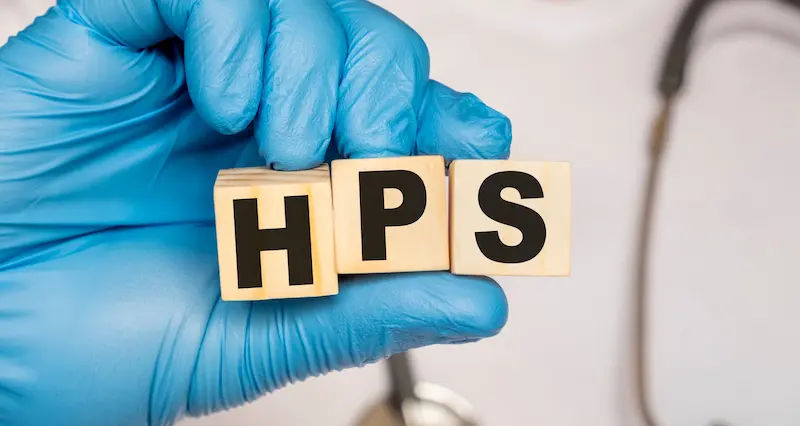Understanding Graves' Disease Symptoms and Treatment
Graves' disease is a common autoimmune disorder causing hyperthyroidism. Learn its symptoms, causes, diagnosis methods, and treatment options; including medications, lifestyle changes, and when to seek help.


Introduction
Graves' disease is an autoimmune disorder that affects the thyroid gland, leading to an overproduction of thyroid hormones (hyperthyroidism). It can cause a range of symptoms, from weight loss to anxiety, and requires proper management to prevent complications. If you or a loved one has been diagnosed with Graves' disease, understanding its symptoms, causes, and treatment options can help in managing the condition effectively.
What is Graves' Disease?
Graves' disease is the most common cause of hyperthyroidism, where the immune system mistakenly attacks the thyroid gland, causing it to produce excessive hormones. These hormones regulate metabolism, heart rate, and energy levels, so an imbalance can affect multiple body functions.
Who is at Risk?
Gender: Women are more likely to develop Graves' disease than men.
Age: It often appears between the ages of 30 and 50.
Family History: A family history of thyroid or autoimmune disorders increases risk.
Stress & Smoking: High stress and smoking may trigger or worsen symptoms.
Common Symptoms of Graves' Disease
The symptoms can vary from person to person but often include:
1. Hyperthyroidism Symptoms
Weight loss despite normal or increased appetite
Rapid or irregular heartbeat (palpitations)
Anxiety, irritability, or nervousness
Tremors (shaking hands or fingers)
Heat sensitivity & excessive sweating
Fatigue & muscle weakness
Frequent bowel movements or diarrhea
2. Graves’ Eye Disease (Graves’ Ophthalmopathy)
Some people develop eye-related symptoms, such as:
Bulging eyes (proptosis)
Red, irritated, or dry eyes
Double vision or light sensitivity
Swelling around the eyes
3. Skin Changes (Graves’ Dermopathy)
Thick, red skin, usually on the shins (rare)
If you experience these symptoms, consult a doctor for proper diagnosis and treatment.
What Causes Graves' Disease?
The exact cause is unknown, but factors include:
Autoimmune Response: The immune system produces antibodies (TSI) that stimulate the thyroid to overproduce hormones.
Genetics: A family history increases susceptibility.
Environmental Triggers: Stress, infections, or smoking may contribute.
How is Graves' Disease Diagnosed?
Doctors use several tests to confirm Graves' disease:
1. Blood Tests: Measure thyroid hormone (T3, T4) and TSH levels.
2. Antibody Tests: Check for thyroid-stimulating immunoglobulins (TSI).
3. Radioactive Iodine Uptake Test: Determines thyroid activity.
4. Ultrasound or Imaging: Checks for thyroid enlargement or nodules.
Get Your Symptoms Checked now
If you suspect Graves' disease, you can book a thyroid function test or consult an endocrinologist through Apollo 24|7 for accurate diagnosis.
Treatment Options for Graves' Disease
Treatment aims to reduce thyroid hormone levels and manage symptoms. Options include:
1. Anti-Thyroid Medications
Methimazole or Propylthiouracil (PTU): Blocks excess hormone production.
Side Effects: May cause liver issues or low white blood cell count (rare).
2. Radioactive Iodine Therapy
A single dose of radioactive iodine shrinks the thyroid gland.
May lead to hypothyroidism (underactive thyroid), requiring lifelong hormone replacement.
3. Surgery (Thyroidectomy)
Partial or complete removal of the thyroid if medications fail or in severe cases.
Lifelong thyroid hormone supplements are needed afterward.
4. Beta-Blockers
Help control rapid heartbeat, tremors, and anxiety temporarily.
Managing Graves’ Eye Disease
Artificial tears for dryness.
Steroids or surgery in severe cases.
Quit smoking, as it worsens eye symptoms.
Lifestyle & Dietary Tips for Graves' Disease
While medical treatment is essential, lifestyle changes can help manage symptoms:
1. Eat a Balanced Diet
Calcium & Vitamin D: Support bone health (hyperthyroidism weakens bones).
Selenium & Zinc: Found in nuts, seafood, and whole grains, may help thyroid function.
Avoid Excess Iodine: Found in seaweed, iodized salt, and some supplements, as it can worsen symptoms.
2. Manage Stress
Practice yoga, meditation, or deep breathing to reduce stress triggers.
3. Exercise Moderately
Gentle activities like walking or swimming help maintain energy without overexertion.
4. Avoid Smoking & Alcohol
Smoking worsens eye symptoms and interferes with treatment.
5. Regular Follow-ups
Monitor thyroid levels and adjust medications as needed.
When to See a Doctor?
Seek immediate medical attention if you experience:
Severe heart palpitations
Sudden weight loss or extreme fatigue
Vision changes or eye discomfort
If you need expert advice, you can book an endocrinology consultation or thyroid test on Apollo 24|7 for personalized care.
Final Thoughts
Graves' disease is manageable with the right treatment and lifestyle adjustments. Early diagnosis and consistent care can help prevent complications and improve quality of life. If you suspect symptoms, don’t hesitate to consult a healthcare provider for proper evaluation.
Consult Top Specialists for Personalised Tips
Consult Top Specialists for Personalised Tips

Dr. Mainak Baksi
General Practitioner
13 Years • MBBS , MD (MPH)
Howrah
Mainak Baksi Clinic, Howrah
(50+ Patients)

Dr. Rajib Ghose
General Physician/ Internal Medicine Specialist
25 Years • MBBS
East Midnapore
VIVEKANANDA SEBA SADAN, East Midnapore

Dr Suseela
General Physician
5 Years • MBBS
Bengaluru
Apollo Medical Center, Marathahalli, Bengaluru

Dr Aswathy D C
General Practitioner
6 Years • MBBS
Bangalore
Apollo Clinic Bellandur, Bangalore

Dr. Rajesh R
General Practitioner
24 Years • MBBS
Bengaluru
Maruti Polyclinic and dental care, Bengaluru





